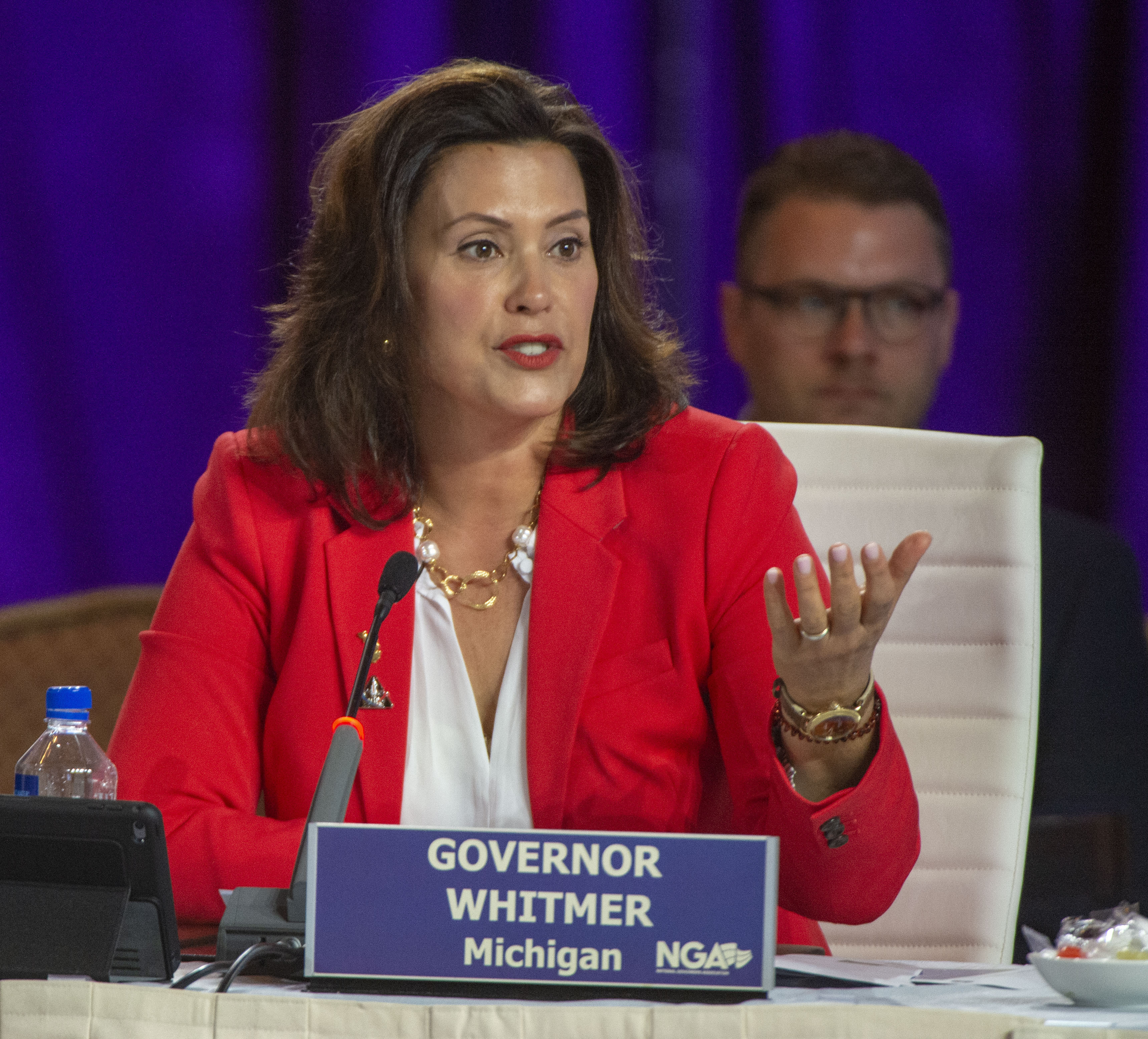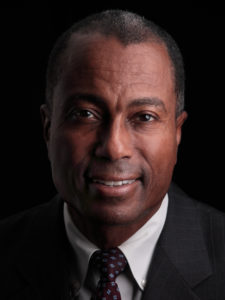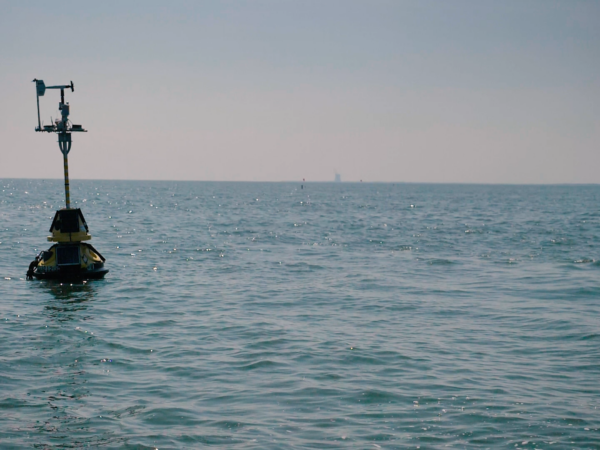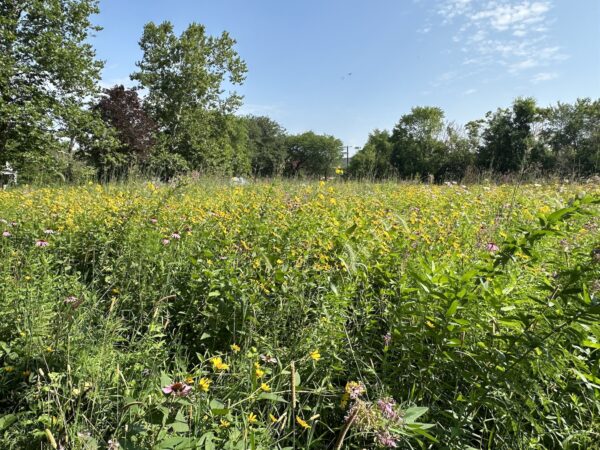
When you ask well-intentioned government officials about environmental justice issues and why they are so difficult to remedy, the response usually goes like this:
“Some of the challenges we see as environmental problems are really rooted in decades of disinvestment in parts of our urban communities,” Liesl Clark, director of Michigan’s Department of Environment, Great Lakes and Energy told Great Lakes Now in a 2019 interview.
That’s why it was important that Michigan Gov. Gretchen Whitmer focused on environmental justice from the beginning of her administration, Clark said and pointed out that an environmental justice public advocate position was created for that purpose.
And now, the commitment to environmental justice faces a tough test—the COVID-19 virus that’s ravaging the country but especially cities like Detroit and Chicago.
“Environmental justice communities include people who live in some of America’s poorest and most polluted environments,” University of Detroit Mercy environmental law professor Nick Schroeck told Great Lakes Now.
Schroeck co-directs community engagement at the Center for Urban Responses to Environmental Stressors at Wayne State University.
“In Detroit and many other urban areas, environmental justice communities have majority African American or Hispanic residents that can be especially vulnerable during this COVID-19 pandemic,” Schroeck said.
He cited lack of access to drinking water and poor air quality as threats that non-environmental justice communities don’t typically experience.
People in environmental justice communities tend to live in close proximity to significant sources of air pollution and asthma rates are higher, Schroeck said. He points out that “asthma is a dangerous underlying condition for COVID-19” according to the Centers for Disease Control and Prevention.
Besides the physical threats, Schroeck cited poverty and distrust of state and federal officials based on past incidents like the Flint water crisis as contributing to vulnerability to COVID-19.
Read more Great Lakes Now coverage of water shutoffs:
Water for All: Milwaukee, Chicago lead in ensuring water during COVID-19 crisis
Michigan Water Shutoffs: A test of governor’s commitment to social, environmental justice
Water access is vital
Access to water for drinking and basic sanitation has never been more important, since a primary deterrent to COVID-19 is regular hand washing.
The issue of water shutoffs for non-payment and restoration of service has been long-simmering and pre-dates COVID-19, especially in Detroit and throughout Michigan.
A coalition of water rights advocates led by the American Civil Liberties Union was privately pressuring Gov. Whitmer in November 2019, well before COVID-19 was an issue, to end shut-offs and restore service for people in poverty.
In January 2020 the group took its case public, calling for Whitmer to use her authority to act “because of years of Detroit city and state officials’ inaction, apathy or disregard,” to the shutoff issue.
“We need the Governor to override the disregard for lower income city residents,” said Dave Noble, executive director of the ACLU of Michigan in the press release at the time.
But it wasn’t until March, with COVID-19 looming over Michigan, that Whitmer ended the water shutoffs and mandated service restored via an executive order. The order included a requirement that water suppliers report by April 12 on the action taken to restore service and the number of residences still without service.
A press release on April 16 from Michigan’s State Emergency Operations Center said “more than 1,500 Michigan residences had water service reconnected or avoided planned shutoffs as a result of Gov. Gretchen Whitmer’s Executive Order 2020-28.”
“The restoration of water service to these homes through Governor Whitmer’s actions helps some of our most vulnerable during this challenging time and gives Michiganders access to the tools they need to protect themselves,” EGLE director Clark said in the release.
The press release contains a link to a spreadsheet that details the reconnection status of 200 public water systems.
Water rights activists have contended that the official data on the number of residences in Detroit without water does not align with the actual number.
“The restoration of water services to date under the Restart Plan is approximately 1,100 occupied residences, which is far short of the actual numbers of water deprived homes,” The People’s Water Board said in an April 17 statement on its website.
The group asked Gov. Whitmer “to act immediately to understand why this vast discrepancy exists and to ameliorate it.”
EGLE is working with cities including Highland Park which reported an estimated 100 residences still without water, according to spokesperson Hugh McDiarmid, who said the agency will provide some of the funding via grant assistance.
The ACLU called the restoration of service “common sense” given COVID-19 but said the ban on shutoffs should continue after the current crisis ends.

ACLU Michigan Racial Justice Attorney Mark Fancher
“Water is a human right every day, and people have a right to health care and access to clean, running water in order to wash their hands, prepare food, and bathe to stay healthy, period—even after this virus runs its course,” said Mark Fancher, ACLU’s Michigan Racial Justice attorney.
As a candidate for governor in 2018 Whitmer stated in her drinking water plan that “we need clean drinking water to live, and no Michigander should suffer an interruption in their water service because of a delinquency in bill payments.”
“I believe water to meet basic needs is a fundamental right and essential to public health, and I will work to ensure that everyone has access to a livable quantity of water at an affordable rate,” Whitmer said.
Great Lakes Now reported in late March that Milwaukee has had a policy of not disconnecting water service because of unpaid bills that existed well before the COVID-19 crisis.
In Chicago, Mayor Lori Lightfoot ended shutoffs in her first day in office in May 2019. In her first budget she secured approval from the city council for a water affordability program.
“When you cut somebody off from water, you’re effectively evicting them and putting them on the street. We will not do that in the city,” Lightfoot said when she announced the end of shutoffs.
Lessons to be learned

Regina Strong, State of Michigan environmental justice public advocate
Regina Strong is Michigan’s environmental justice public advocate and Great Lakes Now asked her what takeaways there are so far from the COVID-19 experience.
“Lessons will definitely be learned about the inequities that plague communities of color, low-income communities and vulnerable communities,” she said.
Strong said it’s a challenge to make changes when in “emergency mode” but the goal is to integrate the lessons learned into future work.
A racial disparities task force under Lt. Gov. Garlin Gilchrist is now operating to focus on “bringing together a broad cross section of people who are identifying actions that can have an impact,” Strong said.
On Monday, Gov. Whitmer issued the executive order creating the task force.
“COVID-19 has taken a disproportionate toll on Michigan’s communities of color and I am confident this task force will help us identify the factors driving this disparity and to identify actions we can take to create a more equitable Michigan for everyone,” Whitmer said in a press release.
The task force will investigate the causes of racial disparities in the impact of COVID-19 and recommend actions to address those disparities. It is expected to be in place until 90 days after termination of the official state of emergency.
Chicago: Significant racial health inequities
On April 6 Chicago released COVID-19 data revealing that through April 5, the virus had a significantly more devastating impact on black communities than any other ethnic group.
Of the 3,275 diagnosed cases, over half or 1,824 were black, though the group comprises only 30 percent of Chicago’s population.
The Department of Public Health said that one-quarter of the cases did not have a race or ethnicity reported by the medical provider, leading the department to say that the number of Hispanic cases is likely undercounted.
“This new data offers a deeply concerning glimpse into the spread of COVID-19 and is a stark reminder of the deep-seated issues which have long created disparate health impacts in communities across Chicago,” said Mayor Lori Lightfoot.
Dr. Regina Benjamin was the surgeon general in the first term of President Barack Obama and was recently interviewed by Chicago Public Radio’s Natalie Moore.
On COVID-19, Benjamin said it’s important to not blame the victims and emphasized the urgent need to address racial inequities that have a disproportionate impact in Chicago and other big cities.
Benjamin cited the need for access to health care, clean air and clean water.
“Many of our communities don’t have these,” she said.
Catch up on other COVID-19 coverage from Great Lakes Now:
COVID-19 Complaints: Out-of-towners coming to fish in spite of stay home orders
Sporting Uncertainty: COVID-19 casts shadow over Great Lakes sports events
Regulation During COVID-19: Canadian, U.S. agencies lighten monitoring priorities
Featured image: Michigan Gov. Gretchen Whitmer speaks during a session at the National Governor’s Association conference in Salt Lake City. (Rick Egan / The Salt Lake Tribune via AP file)




